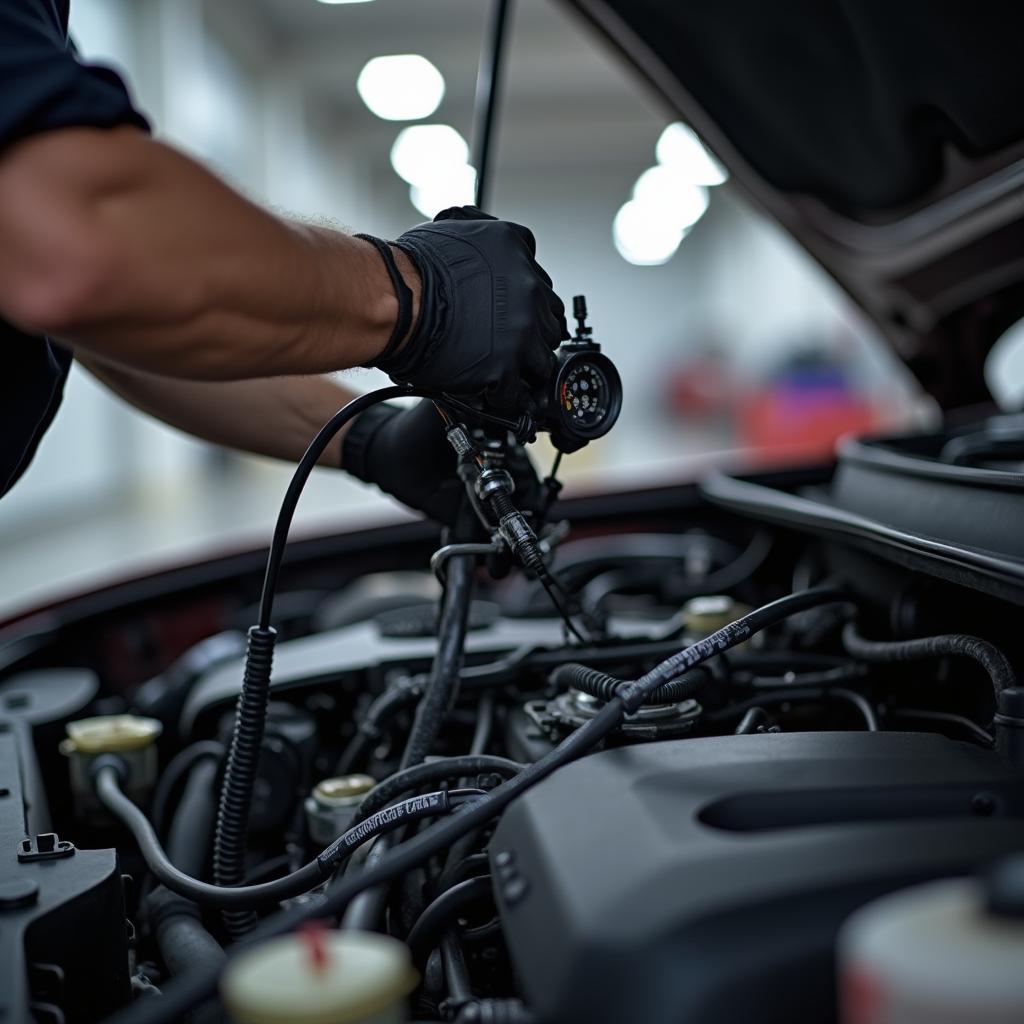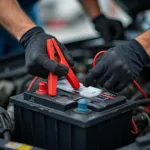Maintaining your car’s engine is crucial for optimal performance, and one system that often gets overlooked is the air vacuum system. While it may seem like a minor component, a malfunctioning air vacuum system can lead to a range of issues, from reduced fuel efficiency to engine damage. This article will delve into the intricacies of air vacuum auto service, covering everything from its importance to common problems and solutions.
Understanding the Air Vacuum System
The air vacuum system in your car is responsible for controlling various components, primarily related to emissions and engine performance. It utilizes the difference in air pressure, creating a vacuum that operates actuators and valves. These components can include:
- Brake Booster: Assists in braking by providing additional force.
- EGR Valve (Exhaust Gas Recirculation): Redirects a portion of exhaust gases back into the intake manifold, reducing emissions.
- HVAC Controls: Regulates heating, ventilation, and air conditioning functions like vent selection and airflow direction.
The Importance of Regular Air Vacuum Auto Service
Regular maintenance of your car’s air vacuum system is essential to ensure its proper functioning. Over time, vacuum lines can become brittle, cracked, or disconnected, leading to leaks. These leaks disrupt the vacuum pressure, causing various components to malfunction.
 Mechanic Inspecting Vacuum Lines in a Car Engine
Mechanic Inspecting Vacuum Lines in a Car Engine
Common Air Vacuum System Problems
A malfunctioning air vacuum system can manifest in several ways, often indicating underlying issues that require immediate attention. Here are some common signs:
- Hissing Sounds from the Engine Bay: This often indicates a vacuum leak, especially when accelerating or at idle.
- Diminished Braking Performance: A hard brake pedal or reduced braking assistance can be a sign of a faulty brake booster, often caused by vacuum leaks.
- Rough Idle or Stalling: A leak in the vacuum lines connected to the intake manifold can disrupt the air-fuel mixture, leading to rough idling or engine stalling.
- Check Engine Light Illumination: A malfunctioning EGR valve or other vacuum-operated components can trigger the check engine light.
Diagnosing and Fixing Air Vacuum System Problems
Diagnosing air vacuum system problems involves a combination of visual inspection and specialized tools. Mechanics often use a vacuum gauge to measure the vacuum pressure within the system, identifying potential leaks. Repairing these issues typically involves:
- Replacing Damaged Vacuum Lines: Cracked, brittle, or disconnected lines need replacement to restore proper vacuum pressure.
- Inspecting and Repairing Vacuum-Operated Components: Faulty components like the EGR valve, brake booster, or HVAC actuators might require repair or replacement.
- Checking for Loose Connections: Ensuring all connections within the air vacuum system are secure and leak-free.
AP Valves Auto Air Service: Keeping Your Engine Running Smoothly
Maintaining your car’s air vacuum system is crucial for its overall health and performance. Regular inspections and timely repairs by qualified technicians can prevent minor issues from escalating into costly repairs.
Frequently Asked Questions (FAQs)
1. How often should I have my car’s air vacuum system inspected?
It’s recommended to have your air vacuum system inspected at least once a year or as part of your regular car maintenance schedule.
2. Can I fix air vacuum system problems myself?
While some minor repairs, like replacing a vacuum line, can be done with basic mechanical skills, it’s generally recommended to seek professional help for diagnosis and repair.
3. How much does air vacuum auto service typically cost?
The cost of air vacuum auto service can vary depending on the severity of the problem and the specific repairs needed.
4. Can ignoring air vacuum system problems damage my engine?
Yes, ignoring air vacuum system problems can lead to further damage to your engine, especially if components like the EGR valve or brake booster malfunction.
5. How can I prevent air vacuum system problems?
Regular inspections and timely repairs are the best ways to prevent air vacuum system problems.
Looking for Reliable Auto Service Companies?
Finding a trustworthy and reliable auto service provider is crucial for maintaining your car’s health. Auto Service Partner can help you connect with reputable mechanics in your area who specialize in air vacuum auto service and other automotive repairs.
Need Help with Your Car’s Air Vacuum System?
Don’t let a malfunctioning air vacuum system compromise your car’s performance and safety. Contact our team of automotive experts today for assistance with any questions or to schedule an appointment. You can reach us via WhatsApp at +1(641)206-8880 or email us at [email protected]. We’re here to help 24/7!


